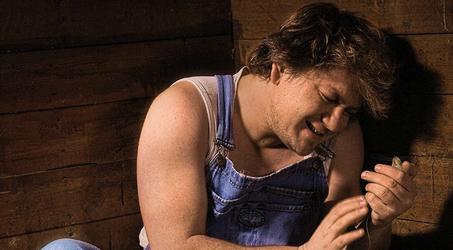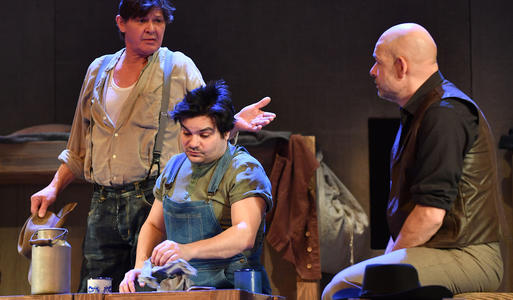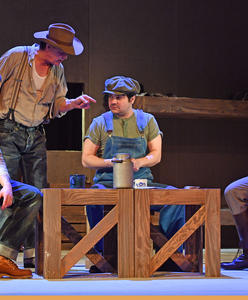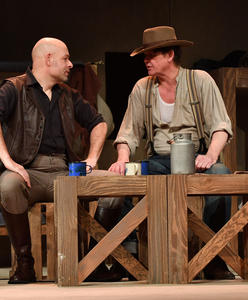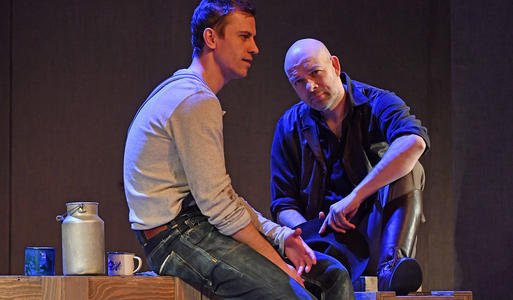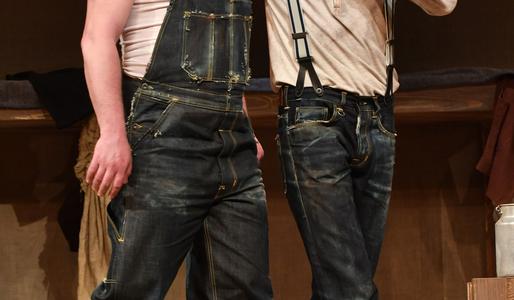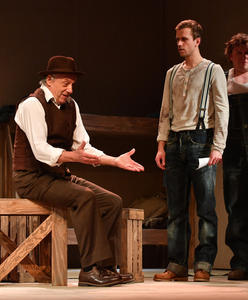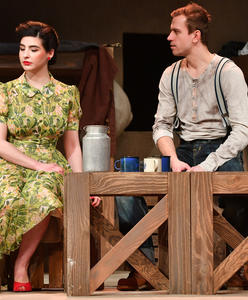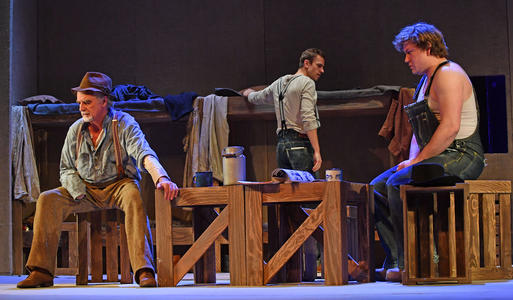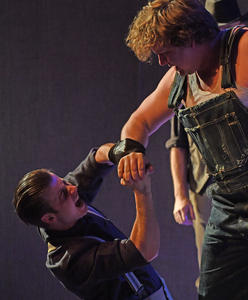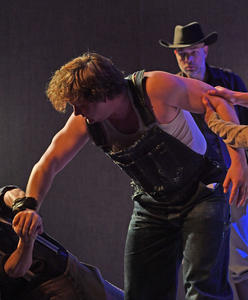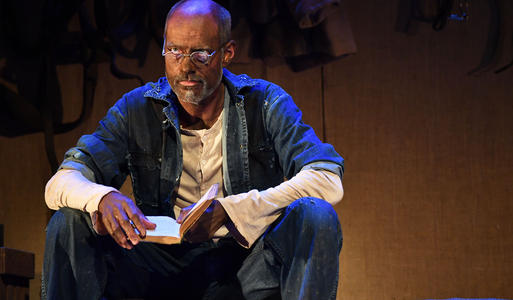a drama about dreams and friendship
In 1937, the renowned American writer John Steinbeck drew from his own experience to write a tale about two roamers searching for seasonal farm work. The story was both prosaic and dramatic in form. Simple-minded hulk Lennie Small and his protector George Milton come to work on a ranch in the Salinas valley in California. They dream of getting their own house with a farm for the money they make. Unfortunately, George´s efforts to protect Lennie against the evils of the surrounding world turn out to be in vain. Lennie, who isn´t aware of his huge strength due to his mental handicap, likes stroking soft things. This fondness, whose consequences forced the two friends to flee their previous place of work, results in tragedy also here, a tragedy which is preceded by the deadly petting of a mouse and a puppy. Lennie unintentionally breaks the neck of a young woman who tries to get closer to him out of admiration for his strength...
The title of Steinbeck´s novel and theatre play refers to (aside from its basic meaning) the poem To a Mouse by Robert Burns, where he says: “The best laid schemes of mice and men often go awry.”
This emotional and strong story is an idiosyncratic comment on the powerlessness of human illusions and the uncertainty of human fate. The character of Lennie Small, one of those people whom “God left unfinished”, combines social commentary on the state of the world with the story of one individual. The contrast between bodily strength and mental weakness completely embodies Steinbeck´s cult of simple-minded primitives whose inability to live in this world is balanced by their closeness to God and nature, and their possession of the fundamental attributes of kind humanity.

